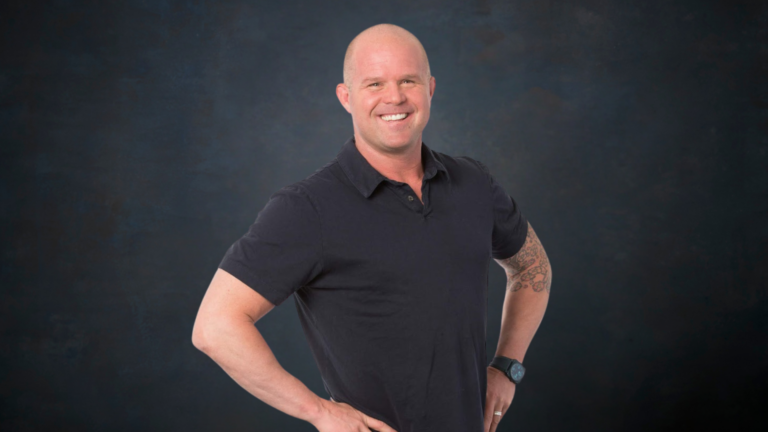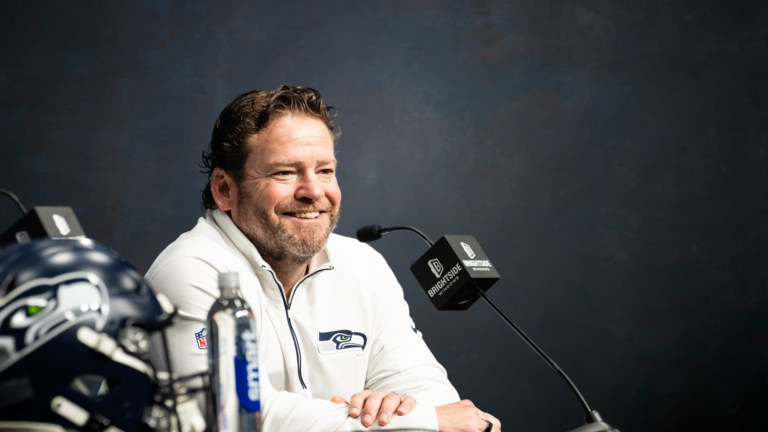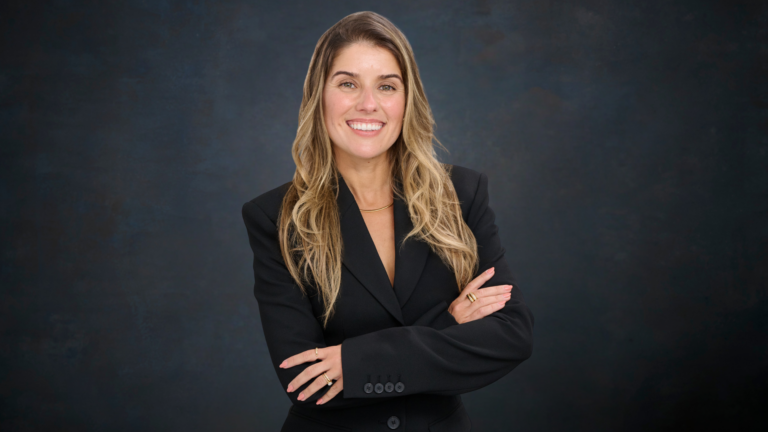This week’s conversation is with Dr. Jeffrey Bland, an accomplished and highly respected thought leader who has spent more than four decades studying the improvement of human health.
Due to his groundbreaking contributions to the field, Jeff is known worldwide as “the founder of the Functional Medicine movement”, which represents his vision for a care model that is grounded in systems biology and informed by research.
Jeff’s pioneering work has created the Personalized Lifestyle Medicine Institute (PLMI), as well as the Institute for Functional Medicine (IFM), both of which are recognized as global leaders in Functional Medicine education.
Jeff’s latest project, Big Bold Health, is on a mission to transform the way people think about one of nature’s greatest innovations — the immune system.
Jeff’s deep knowledge across disciplines and bold ambitions for how we can enhance human health made for a fascinating conversation. We discuss some of his exciting new discoveries in epigenetics – reprogramming them and how they relate to everything from aging and disease to productivity, brain function, immunity, and mental wellbeing.
“Even as you grow older, your genes still have plasticity. Life events can epigenetically modulate how your genes are expressed. That then creates your health trajectories as you grow older – especially your emotional, physical and metabolic health.”
In This Episode:
The four categories of human function
I see function as being encoded in four different categories. One, is there a physical function? I think all of us want physically to perform throughout the course of 100 years of living or more. Second is our cognitive function, being able to think and act rationally and responsibly and quickly and have high processing speed. Third is our metabolic function and my formal training both through medical school and my PhD was really in the whole aspect of metabolism. So I think physiological health is a functional importance. Then lastly, is our behavioral function. How we interact with this complex sociopolitical economic, cultural environment, that we’re living in. A world that’s really undergoing a transition in how people interact with one another as a consequence of the internet and social media and so forth. All of these behavioral constitutions are other variables that relate to our function. When you aggregate it together, then become us in our function as a whole organism.
The four characteristics of the human experiences
When I try to look at principles that aggregate human experience together, there are some that I think are reproducible across all human beings that have lived on the planet, and that is we breathe air, we consume fluids, principally, hopefully water. We eat and we move. Those four characteristics, then define shared common human experience. Now, we do those things in different ways and they impact us in different ways based on how our genes are set up and how we select to utilize those four characteristics in our life.
The role of nutrition in our epigenetic makeup
Maybe most people don’t recognize this, but over the course of living, we’ll eat between 10 and 20 tons of food. The things that make up those foods are molecules. I’ve come from a molecular background, they’re molecules that are not native to our human body. So our body has to understand how to break down that information that comes from our diet, because our diet is not just nutrients alone, it’s information that speaks to our genes that tells our body how it’s going to perform. That concept is a breakthrough concept of the 21st century. So it’s not just preventing nutritional deficiency or the satiety and quenching hunger. It’s also feeding our genes with information that allows him to perform at their highest level to produce the outcome that we call our life.
How our thinking affects our being
The ability to think, to think therefore I am, that concept is a powerful, powerful mover of all functions of the body. So it could be a mover of your physical function, of your cognitive function or your physiological function. They all are interconnected… It creates the system. The body and its relationship to our experience in life is a holistic orchestration. It’s a hologram, right? We’re living in a hologram. All of it is interconnected, and our challenge as a human being is to maximize that holographic experience in life to be the best we can be over the course of our years of living. That’s how I see it. So thinking the right thoughts, hanging with the right people, stimulated in the right way, eating the right foods, getting the right amount of activity, all of those signal together to create that which we call ourselves.
A practical example of epigenetics
I was a basketball player in college and I went on and played basketball in my first couple years at UCLA and had John Wooden as a coach in my early years. He had such a powerful effect on me, an epigenetic effect. I was not a star, obviously. I was never going to be a professional or even a starting basketball player at UCLA. The impact that he had as a lesson plan of life, was so powerful for me that when I then transferred to the University of California at Irvine, when it opened up as a new campus in the University of Cal system and played basketball there, I carried the messages not just about basketball, but about life. Epigenetically imprinted from what I learned from Coach Wooden that then influenced how I then participated in my life in general.
Events and experience help write your epigenetics
What’s happening is you still have some plasticity in your genes, in your book of life that can be marked by your experience, like post traumatic stress, like a chemical exposure, like your exercise program, like how you think about yourself, like social determinants of disease. All those things are marking certain aspects of your genes epigenetically, so that it alters how your book of life is being read into either being a story of great love and bliss and joy, or it can be into a story that is read as a Greek tragedy with alarm, with dysfunction, with inflammation, with chronic illness. It’s those events that epigenetically modulate how your genes are expressed that then create your health trajectories as you grow older, both emotional, physical and metabolic health.
We can repattern our epigenetics
Now, what has just been discovered and I’m saying just, meaning the last 10 years, is this signs of hope that these processes are reversible. This epigenomic patterning can be turned back the other way. For every time you can put something onto a gene to modulate its function, you can take it off and replace it with something else. That reversibility of these epigenetic marks is the domain that all of us that are involved with trying to improve people’s performance, help them be … and guide them to be optimum in their function and health, can use as their resource, is the actual ability to repattern these epigenetic marks by eliminating the marks that were associated with trauma and replacing them with the marks of hope.
We’re not changing our genes
I want to make sure everyone understands that I’m not saying that we’re changing our genes. I want to be really clear. Our genes remain the same. What happens is the message that lays on top of our genes, our software, what we call the epigenome, then influences how our genes are expressed. So the genes stay the same, but the way they get messaged change into our being, of what’s called our phenotype, how we look, act and feel. So with that then, the question becomes, how is that then ultimately influence the ability of us to perform as a human being, and what can we do to make that optimal based upon our book of life? It has all this potential for greatness that sometimes remains untapped because it’s put messages on top of it that keep the bright light of good health kind of dim. The answer to that comes back to what you were really talking about. It is a program of starting to think about what we want in terms of our outcome as it relates to our function, over the course of living.
Think about what health looks and feels like to you
We did a survey of about 10,000 individuals with a little question about what is health for you? I was assuming that the majority of the people are going to say, health means the absence of disease. That was my naive presumption going into this little survey. Well, it turned out that that was not at all. Only a very small percentage of people said health for them was the absence of disease. The majority of people spoke about aspects of health that were related to … they wanted to be fully present to be successful. They wanted to run marathons, they wanted to take up computer programming. They wanted to be present for their family in ways that would make them proud to be their parent. I mean, there are all sorts of ways that were functionally defined as health by individuals that were beyond the scope of absence disease. So the construct that helped is this term like love that has many different meetings for different individuals, is a very, very important thing, because as a person aspires for what their objectives are, what for them is a healthy outcome, as they image that, and as they rehearse that, as they reinforce that, it epigenetically sends that message to their genes to respond favorably to that message. The encoding of that message is then further amplified by other things that person will be doing.
The feeling state
The feeling state to me is translated through three ways that our body communicates with the outside world, 24/7, 365. I think there are only three ways. One is obviously the nervous system. The second of which is the mucosal services of our body called the microbiome, where all these critters live, principally in the gut. The third is the immune system, and the immune system is communicating all the time to the other two. It’s a super system, so the immune system is talking to the nervous system and the nervous system is talking to the microbiome and the microbiome is speaking to the immune system. It’s all a buddy system.
Immuno-rejuvenation
Why am I so interested in the immune system as a marker for how we are going to perform as a human being and as a marker of our health? It’s because the immune system is the most rapidly changeable part of our body’s cellular system… about every three months your immune system cells are completely turning over and being replaced by new immune system cells. Now, the question is, are those new immune system cells the same as, better than or worse than the ones they’re replacing? The answer to that question has to do with how they’re genetically marked, epigenetically marked. So if you want to produce an immune cell that’s better than that which it came from, then you want to take off the bad marks, these are sometimes called immune scars and you want to replace them with new opportunities to have new marks that are related to better immune function, that’s called immuno rejuvenation. The process of immuno rejuvenation, as a biological process was really just discovered over the last seven years. So now we have this extraordinary tool that we can employ to rejuvenate our immune system, which then translates to every organ, every tissue, every cell of our body to create an outcome that’s consistent with our desire for good health.
Why Dr. Bland measures our “immune age”
We started actually measuring biological age determinations, we were on 48 hours of TV program doing this back in the late 80s. So we were early adopters of this technology, but now it has become much more precise because back in the 80s, we didn’t know how to measure epigenomics. Now, we can actually go into specific cell types, in this case, the immune cells, and we can actually measure the epigenetic impact of life on our genes of our immune system, and that gives us a more precise measurement of a cell type aging, and the reason, as I said that we chose immunity is that it is the gateway to health for every organ. The immune system is in our brain, it’s in our liver, it’s in our gut, it’s in our muscles. So it gives us a way of interrogating aspects of age at the biological level that’s very … we think very precise. That’s why we chose immune age.
Zones of influence
We each have a zone of influence. I mean, some people’s zone of influence are very large and other people’s are smaller, but we all have zone of influence and that zone of influence, if we think about how we would then utilize it effectively in a reciprocal way, so we’re helping someone else, it’s in our zone of influence to be the best they can because in reciprocal, it will help us to be the best we can. It’s a two-way conversation. As we grow up the size of our impact, then we keep reminding ourselves that is the central feature of our life principle is to create as much goodness in others as we possibly can because it will pay dividends back to us in goodness in our lives. I think that’s an infective virus that can get in the nervous systems of the general zeitgeist of our population, if we could all do that collaboratively.
What’s it like to be your best?
It’s waking up in the morning, knowing that I’ve got something that I can do that will have a valuable outcome for not only myself, but others. That I’m still pushing the edge of learning about myself to squeeze out as much of the juice in my genes as possible, so that they can be beneficial to those things that are happening well after I’ve left this planet.
Our obligation as humans
As you pointed out early on, we have this unique ability to do things that other organisms can’t do. We can look forward and backward in time. We can create things through our thought process. We can think, we’re a cognitive being and we can use that as a power tool. It’s a superpower. If we then use that to ask the question, what’s the imperative for my living? My living is to leave something as a mark that creates … in this universe of disorder, it creates a little more order, because order requires programmed activity. Order doesn’t happen naturally. Disorder happens naturally. Things go to hell in a hand basket without trying. We have to try to keep things ordered. If our life adds into the fabric of civilization, a little more order, a little more survivability, a little more sustainability, a little more enlightenment, then we have done our job as an organism, living on this planet for a selected century of living.



